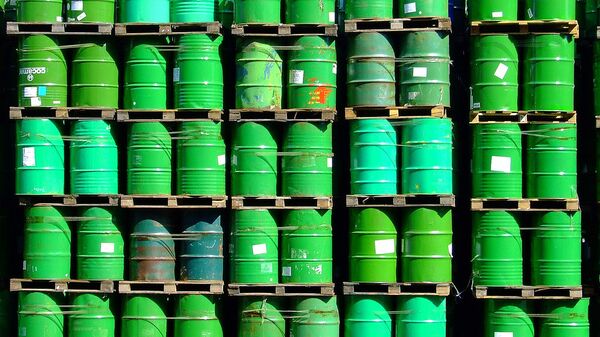On Monday, Riyadh formally severed diplomatic ties with Iran following Saturday's attacks on the Saudi Embassy in Tehran and the Consulate in the city of Mashhad. The attacks were triggered by the execution of prominent Shia cleric Nimr al-Nimr by Riyadh.
"It is certainly a big factor behind the drop in oil prices," Michael Poulsen, Oil Analyst at Global Risk Managemen, told Radio Sputnik.
According to the expert, both countries are currently fighting for market share, with Iran having quite strong positions as result of lifting of the sanctions.
"The oil market is not expecting any armed conflict, and thus a direct impact on oil supply, but rather a fight for market share, and thus, potentially even more oil being available in an already oversupplied market," Poulsen argued.
"They basically said everyone can produce as much as they want which is what everyone is doing," Poulsen said, adding that in the near future OPEC countries are unlikely to come to any positive conclusion.
In Poulsen's opinion, the new year could become a turning point for oil prices. A further decrease could be explained not only by the unstable situation in the Middle East, but also by the drop in Chinese equities or by a massive drop in equities across the globe.
"I think it will be a turning year for oil market in 2016," the expert said, adding that "the lowest oil price should be expected in summer 2016."
At the same time, Poulsen argued that the situation is likely to improve in 2017, when a further drop in production of shale oil is expected.
"2017 will show higher prices than 2016 on the background of many shale oil wells simply being closed," the expert concluded.




